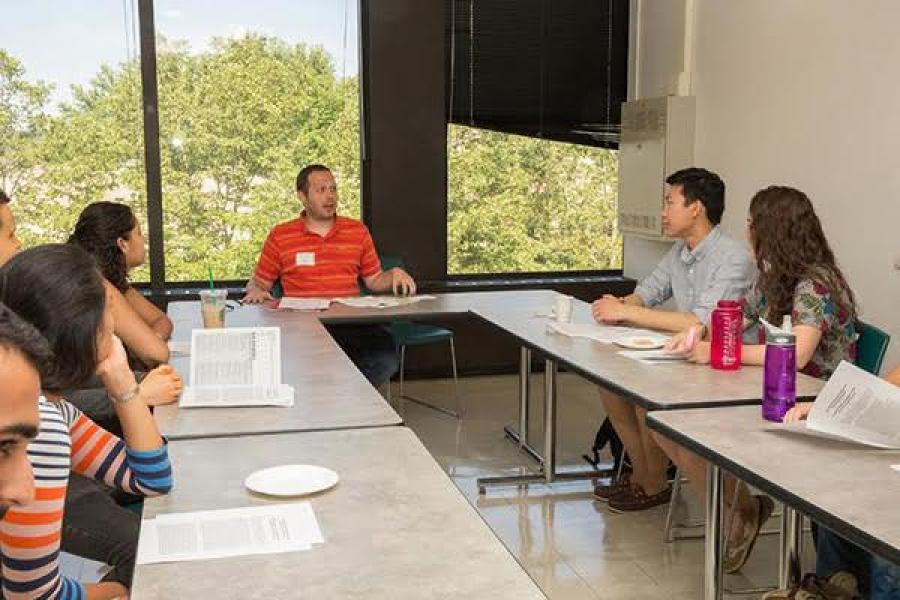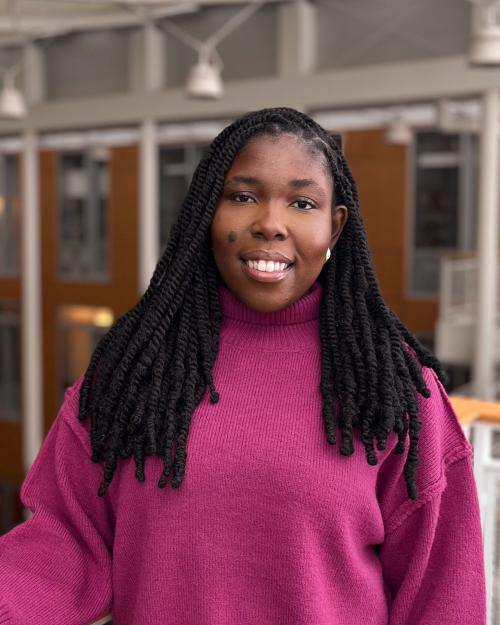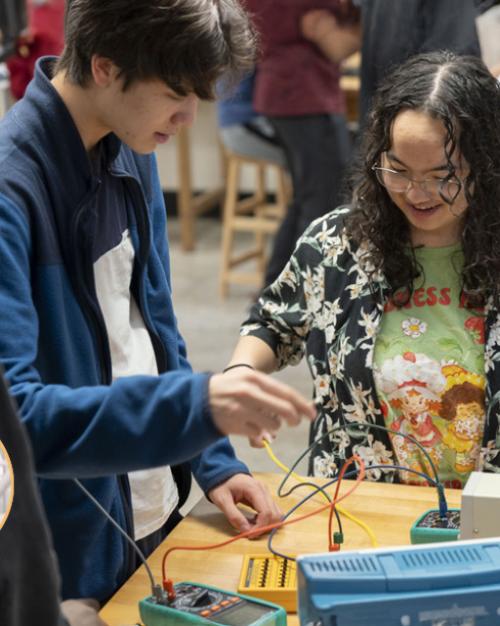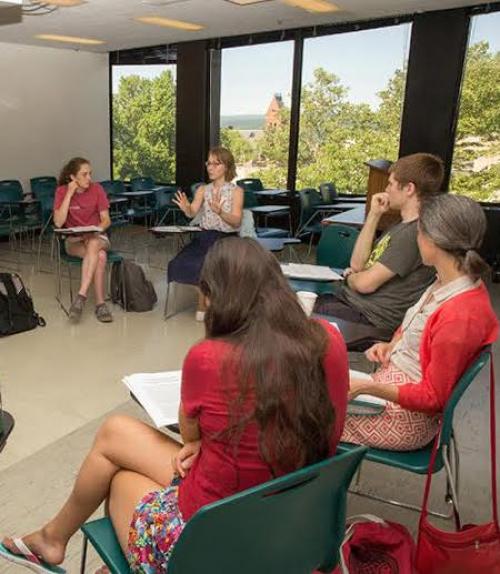Undergraduate researchers from Cornell and other universities gathered June 21 to talk about responsible research and consider various issues surrounding ethics at The Third Annual Summer Undergraduate Workshop on Responsible Conduct of Research.
The day began with a light breakfast and registration, where 78 student attendees were able to mingle and get to know each other, then Colleen Kearns, the Associate Director of Undergraduate Research in the Office of Undergraduate Biology, gave a brief overview of the day and introduced some of the topics that would be discussed. The focus of the workshop was on research best practices and data management.
The next hour was set aside for breakout discussions, which were composed of small group discussions with graduate students and post doctoral facilitators.
Aravind Natarajan, a graduate student studying microbiology, led a discussion with five students, regarding ethics and morals in real life situations.
“Why do we do science?,” asked Natarajan, and explained that we do it to satisfy human curiosity, emphasizing that in order to correctly do this, accurate and truthful data must be obtained.
The students looked at three separate cases, and after examining each one, Natarajan prompted them with questions and gave the students time to bring up their own concerns with each case. The cases dealt with misleading data, what standard work should be held to when published in an academic journal versus as a poster for a conference, and the best way to ethically do an experiment.“Make sure not to have flaws or problems with a procedure,” says Natarajan, encouraging the students to carefully plan out and carry through with their experiments.
At the end of the discussion, students came up with questions to ask a panel. One of the students wanted to hear an example of an ethical situation, while another wondered how the panel would answer the case questions if they were discussing them.
After the discussion, the group went to a lecture hall, where Wendy Kozlowski, a Data Curation Specialist at the library gave a short talk on how to use electronic lab notebooks to facilitate responsible data management. Kozlowski emphasized that good record keeping is key to ethical research.
The panel moderator was Laurel Southard, the Director of the Cornell Office of Undergraduate Research, and consisted of William Brown, chair and professor in the Department of Molecular Biology and Genetics; Martha Field, senior research associate in the Division of Nutritional Sciences; Cynthia Leifer, associate professor in the Department of Microbiology and Immunology in the College of Veterinary Medicine, and Kozlowski.
“In anything, you will deal with ethical issues,” says Southard, “it’s figuring out how to talk about issues.”
Southard asked the panel the questions each discussion group brought up, and each panel member contributed their answers.
“You’re in charge of the data that comes out of an experiment,” says Leifer when discussing misleading data, “you should be comfortable with it.”
Anita Verma, the Director of the Cornell Office of Research Integrity and Assurance (ORIA), left the students with four main pieces of advice. She urged them to pay attention to detail, to use the resources around them and talk to people when they have a question or concern, to be responsible, and to listen to their mentors because they are really important.
“You are the best judge of what feels right,” says Verma, “if something doesn’t feel right, it’s your responsibility to act on it.”
The Third Annual Summer Undergraduate Workshop on Responsible Conduct of Research was sponsored by the Office of Undergraduate Biology (OUB) in collaboration with the Office of Research Integrity and Assurance (ORIA) and the Office of Undergraduate Research.
Anna Carmichael is a communications assistant for The College of Arts and Sciences.





